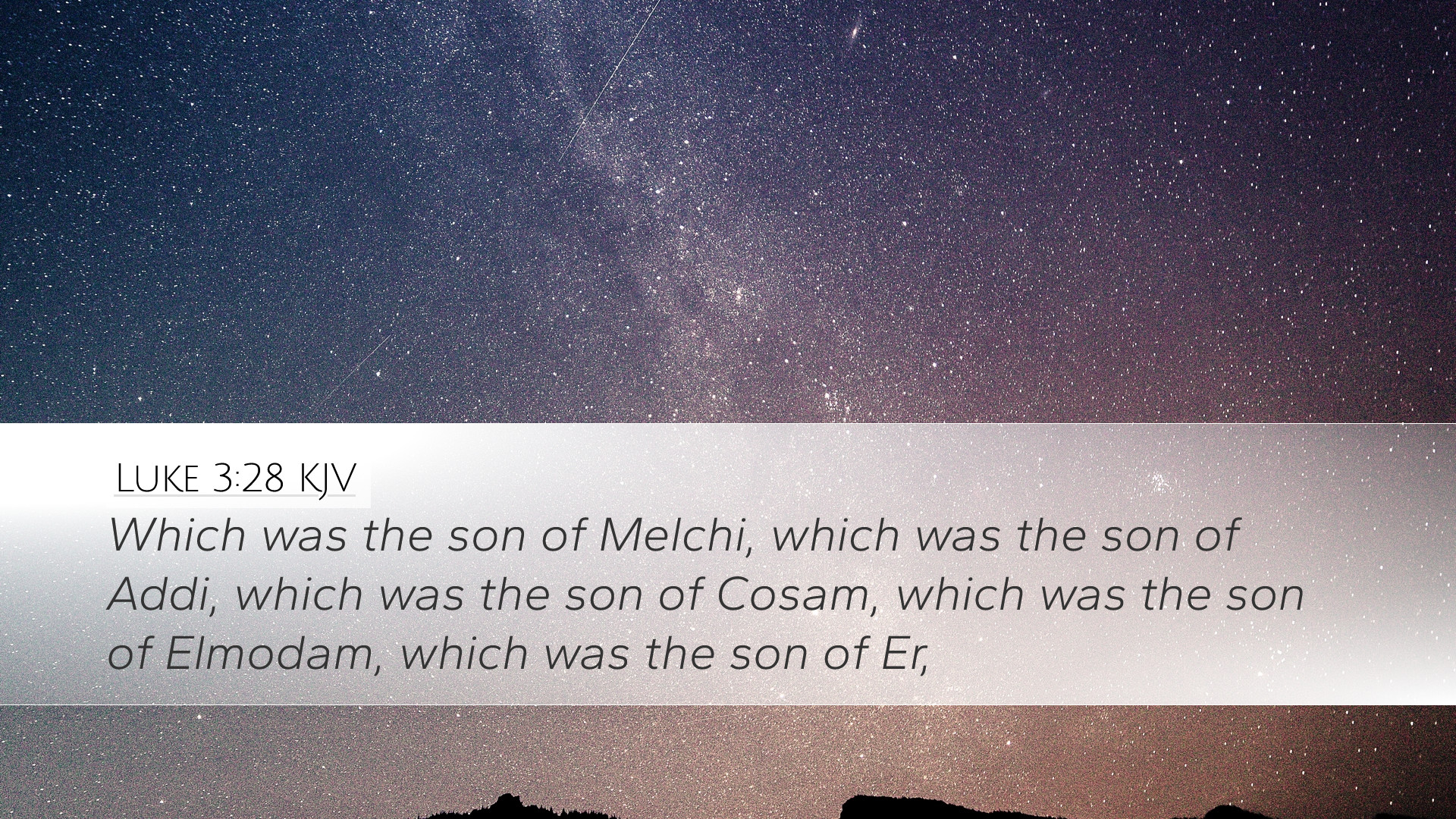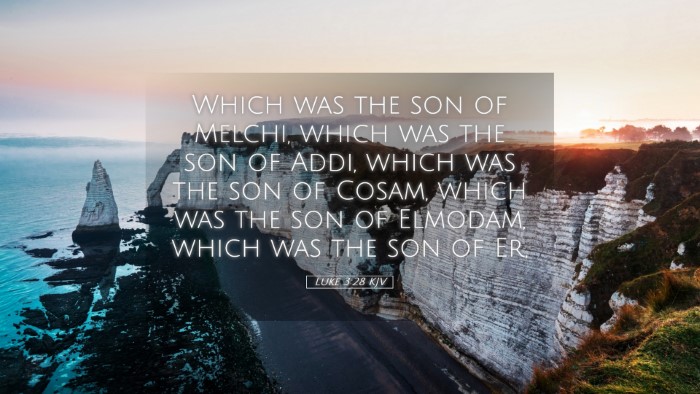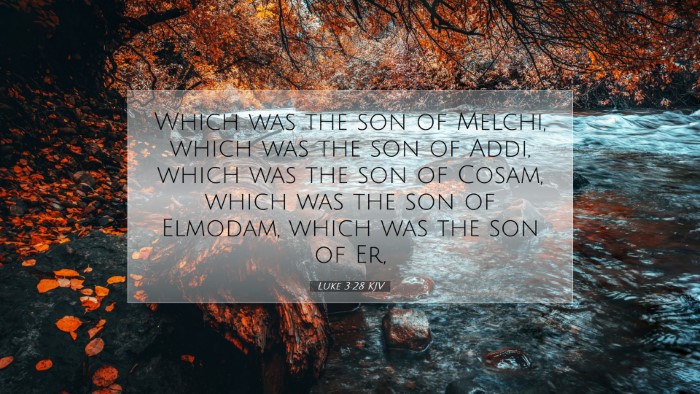Commentary on Luke 3:28
Luke 3:28 states, “The son of Melea, the son of Menna, the son of Mattatha, the son of Nathan, the son of David.” This verse forms part of the genealogy of Jesus, illustrating His rightful lineage as a descendant of David. The significance of this lineage is deep, as it ties Jesus to the fulfillment of Old Testament prophecies concerning the Messiah's origin. Below is a summarization of insights from select public domain commentaries.
Historical Context
Matthew Henry emphasizes the importance of genealogy in the Jewish tradition. He notes that the Jews placed significant value on their ancestry, as it established social status and religious legitimacy. The inclusion of Nathan, rather than Solomon, in this line of descent is particularly meaningful as it signifies a spiritual rather than merely regal claim to the throne, pointing to the nature of Jesus' kingship.
Theological Significance
Albert Barnes highlights the theological implications of this lineage. In the Gospel of Luke, the genealogy serves to underscore the humanity of Christ, making Him relatable to all people. By tracing His lineage back to David via Nathan, it affirms the prophecy that the Messiah would arise from the house of David but positions Jesus in such a way that emphasizes His mission to include all of humanity, not just the Jewish people. This is significant for theology as it reflects God's intention for salvation to be offered universally.
Genealogical Elements
Adam Clarke provides an in-depth look at the names listed in this genealogy. He notes that this particular approach of listing the lineage may reflect a common practice of the time to preserve the heritage of notable figures. Clarke also mentions the significance of “Melea,” “Menna,” and “Mattatha” in contributing to the authenticity and historical accuracy of Jesus' lineage. Each name serves to create a connectedness that reinforces the belief in Jesus as the fulfillment of the messianic prophecies.
Comparative Analysis
- Contrast with Matthew's Account: Matthew's genealogy traces Jesus's lineage through Solomon, highlighting His royal lineage and kingly authority. In contrast, Luke's emphasis on Nathan presents a different aspect of David's lineage—the notion of a priestly and prophetic heritage.
- Inclusion of Women: While Luke's genealogy is primarily male-dominated, the next chapters will illustrate the role of women in Jesus' life and ministry, emphasizing the inclusion and value of every individual in God's plan.
- Symbolism of Names: Each name within the lineage carries weight—prophetic meanings and historical significance that tie back to Israel's heritage and God's promises to His people.
Application for Modern Readers
The implications of this genealogy stretch beyond historical and theological discussions. For pastors and theologians, it serves as a reminder of the continuity of God's plan throughout history. Students of the Bible should recognize the importance of context when interpreting genealogies, understanding how they reflect cultural values and theological truths.
Conclusion
In summary, Luke 3:28 encapsulates not only the genealogical lineage of Jesus as a descendant of David but also emphasizes broader themes of inclusivity, divine purpose, and the fulfillment of Old Testament prophecies. Reflecting on the insights from Matthew Henry, Albert Barnes, and Adam Clarke provides a multi-faceted understanding that enhances the appreciation of scripture for pastors, scholars, and students alike.


